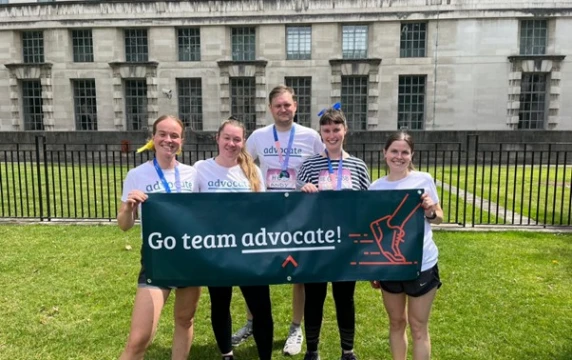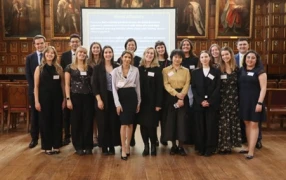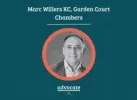Marc Willers KC of Garden Court Chambers was highly commended for this year’s Pro Bono KC of the Year Award in the 2025 Bar Pro Bono Awards. He has dedicated a significant portion of his practice to pro bono work, particularly in the fields of environmental law, climate justice, and civil liberties.
In the story below, Marc shares more about the pro bono work he has undertaken, including his experience working with FRU, as well as his work representing Gypsy and Traveller communities in planning cases, including in the High Court and the Court of Appeal. He also highlights how his pro bono work has unlocked a number of exciting opportunities to work with lawyers and NGOs both in the UK and internationally.
I was called to the Bar in 1987 and began representing clients in criminal cases during my second six-month pupillage in April 1988. However, by that time I had already taken on two employment cases for the Free Representation Unit (FRU) while studying for my Bar Finals. That early pro bono work was invaluable: it had given me courtroom experience, built my confidence, and taught me how to engage with clients and opponents.
It’s hard now to recall my initial motivation, but working with FRU quickly showed me how vital pro bono advocacy is for clients who can’t afford legal representation. Without it, many would find it simply impossible to access justice; or in the event that they represented themselves be placed at a significant disadvantage, often against highly experienced lawyers.
That understanding only deepened when I began representing Gypsies and Travellers in planning cases—fighting for their right to live on their land in their caravans in accordance with their traditional way of life. These were complex, contested cases, often against senior planning barristers. Many clients were illiterate and unable to navigate the legal system, so I provided pro bono support when needed.
There are two important pro bono cases I worked on that stand-out to me:
- In one I represented the charity London Gypsies and Travellers in the High Court and Court of Appeal, intervening in a case where Bromley Council sought a wide injunction to ban Gypsies and Travellers from camping on 171 sites. The High Court rejected the application, and the Court of Appeal upheld that decision in London Borough of Bromley v Persons Unknown, London Gypsies and Travellers and others (2020) EWCA Civ 120.
- In another I led a team of barristers and delivered the oral argument before the Privy Council in Mussington and Frank v Development Control Authority and ors [2024] UKPC 3. The appellants challenged the Antiguan government’s approval of a new airport on Barbuda on environmental grounds. Although the Caribbean courts dismissed the case for lack of standing, the Privy Council ruled they did have standing and sent the case back for trial.
Engaging in pro bono work has been deeply fulfilling for me, both professionally and personally. Most importantly, pro bono work has ensured that some of the most vulnerable and marginalised people in our society have had representation before the courts in cases that profoundly impact on their lives.
Beyond that, it has provided opportunities to collaborate with exceptional lawyers and inspiring NGOs, both in the UK and internationally, and led to opportunities which would otherwise have passed me by. For instance, after offering pro bono advice to campaigners opposing a fossil fuel extraction project in Surrey, I was instructed in the successful landmark Supreme Court case of Sarah Finch v Surrey County Council and ors [2024] UKSC 20.
In essence my key message to fellow lawyers and aspiring members of the profession is this: offering your time and expertise without charge to help others access justice is one of the most meaningful and rewarding aspects of being a lawyer.
Marc Willers KC, Garden Court Chambers.
If you are a barrister who is interested in incorporating pro bono work into your practice, find out more about taking on pro bono work with us.
Pro bono work can be useful in demonstrating the competencies assessed in applications to become a KC. Make sure to read our Guide to how pro bono work can assist when applying for silk to find out more.






